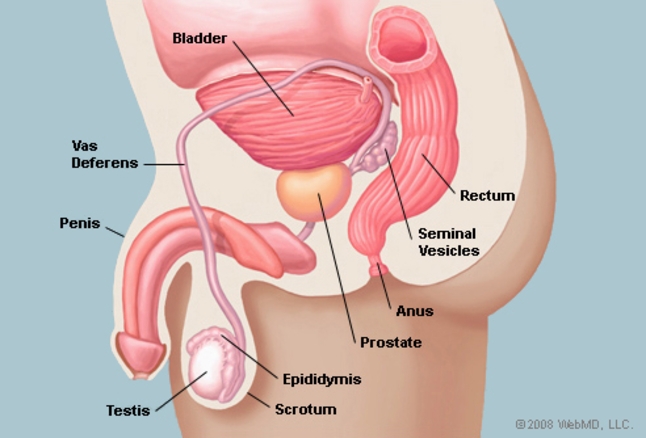CATERGORY: REJUVENATE PROSTATE
The Prostate Gland & Common Concerns
The prostate is a male reproductive system gland about the size of a chestnut and weighs about 30 grams. It is located directly below the bladder and above the penis. The urethra runs from the bladder through the center of the prostate to the penis. Urine flows of out the body through the urethra. The rectum is behind the prostate, making it possible to feel the gland from the rectum using the finger.
During ejaculation, the prostate secretes a milky prostatic fluid and squeezes it into the urethra. This fluid mixes with sperm and seminal fluid to produce semen. The muscles of the prostate ensure that the semen is forcefully pressed into the urethra and then expelled outwards during ejaculation.
Prostatic fluid makes up around 30% of semen volume and is important for fertility. The fluid contains the enzyme prostate-specific antigen (PSA) which makes semen thinner and a hormone-like substance spermine which ensures sperm cell motility (ability to move).

The prostate also transforms testosterone to DHT - a male sex hormone which Is needed to develop and maintain masculine characteristics like deep voice, facial hair, and muscles.
Common prostate concerns include:
• Prostatitis - inflammation of the prostate which is sometimes caused by infection. Approximately 8% of men experience prostatitis.
• Enlarged prostate (also known as benign prostatic hypertrophy or BPH) - enlargement of prostate tissue which leads to urination difficulties. About half of all men between ages 51 and 60 have BPH. Up to 90% of men over age 80 have it.
• Prostate cancer - is the most common cancer in men after skin cancer. About one in 9 men will be diagnosed with prostate cancer during his lifetime, but only one in 39 men die from prostate cancer. About 80% of men who reach age 80 have cancer cells in their prostate.
Diagnostic tests include:
• Digital rectal examination (DRE) - a doctor inserts a lubricated, gloved finger into the rectum and feels the prostate to detect an enlarged prostate, lumps or nodules associated with prostate cancer, or tenderness from prostatitis.
• Prostate-specific antigen (PSA) blood test - high levels of PSA in the blood are associated with both enlarged prostate and prostate cancer.
• Prostate ultrasound - an ultrasound probe is inserted into the rectum close to the prostate to diagnose for cancer.
• Prostate biopsy - a needle is inserted (through the rectum) into the prostate to get tissue samples for cancer screening.


